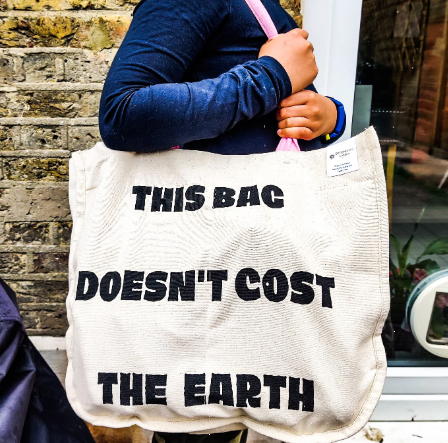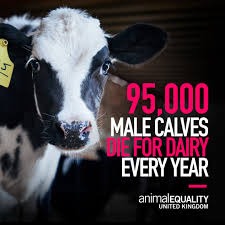Since the Industrial Revolution, humankind has become one of the major culprits causing serious environmental and social problems. From climate change to the depletion of natural resources, we are creating and worsening economic inequality between different societal groups. Experts warn that if we keep using up natural resources like this, it’ll seriously impact our ability to make things in the future.
Fortunately, our young generations nowadays are increasingly aware of sustainable behaviours and green consumption. In this blog post, we’ll discuss what triggers sustainable consumption and the psychology of buying green products.
What is Sustainable Consumption?
Sustainable consumption refers to the use of products or services to satisfy our basic needs and improve our quality of life without spoiling critical resources for future generations. The concept of sustainable consumption in marketing involves minimising the use of natural resources, avoiding environmentally harmful materials, and reducing waste and pollution throughout the entire lifecycle of goods and services.
Read More: What is Sustainable Marketing? Definition, 4Ps Strategy, Trends & Challenges
A future priority of young demographics
A survey on Green Consumerism among 3 generations (Gen X, Y, and Z) discovered that the younger people are, the more positive attitudes they have towards sustainable consumption. Among them, millennials are showing a huge interest in engaging in environmental conservation and social initiatives. Nielsen found that 75% of millennials are environmentally conscious, and 90% of them are willing to pursue a more sustainable lifestyle.
Gen Z is another prospective group of consumers for sustainable products since these individuals are more well-educated and fully aware of the current environmental problems and green consumerism. Yet, most young people are collective and social-oriented due to the popularity of social networking platforms nowadays which means that their consumption habits are heavily influenced by other fellows. In other words, if businesses want to market eco-friendly offerings to this customer base, they will have to educate the entire generation, create a culture of sustainable consumption and make it a norm among young people.
Key Drivers of Sustainable Consumption
1. Perceived Effectiveness – how important my habits are
A study on the Psychological Factors of Sustainable Consumption discovered that perceived effectiveness and influence on the marketplace are critical drivers of green behaviours. When people perceive their individual actions as influential and potentially widespread in addressing environmental problems, they are more likely to adopt responsible attitudes and behaviours.
For instance, a plastic shopping bag is normally used for around 12 minutes on average, yet it takes nearly a thousand years for the environment to break it down. If people are aware of this matter and opt to use reusable shopping bags instead, they can individually help prevent the planet from enduring the harmful effects of this plastic waste for centuries to come.
As people also know that adopting reusable shopping bags can easily spread among the public, they are even more motivated to change their consumption. Since 2016, over 90% of British shoppers have been bringing their own shopping bags for all given reasons.

Hence, providing clear and compelling information about the environmental consequences of sustainable consumption is key to sustainable marketing success nowadays. For instance, brands can use testimonials to tell consumers about how individual actions have made a difference, contributing to the overall collective efforts. This customer-centric messaging is much more effective than boasting about how green products are with unclear explanations.
2. A Sense of Environmental Responsibility
A sense of environmental responsibility refers to an individual’s awareness of their impact on the natural world and their commitment to taking actions that minimise harm and promote sustainable consumption. In other words, brands can raise consumers’ sense of responsibility by showing them how mankind has spoiled the environment and social welfare since Industrialisation.
The given study on Psychology also claimed that when people fully recognise the adverse impact that human activities have on nature, they are more likely to feel compelled to take action to mitigate these effects.
For example, individuals may choose to drink plant-based milk instead of dairy milk due to concerns about ecological issues and animal welfare. A survey in Australia in 2022 has shown that more and more people are switching to plant-based milk to protect animal welfare since we all know that cows must give birth to produce milk. In the UK, 2 million cows are cruelly treated and even killed for dairy each year, and 95,000 male calves are killed on-farm just because they cannot produce milk. What’s shocking figures!

What should brands do in this case? Personally, I want to see more promotional campaigns from plant-based milk raising concerns about this outrageous fact. Consumers must be aware of their unethical consumption and build up a sense of responsibility in protecting not only the environment but also naive animals out there.
3. Personal Values and Past Supportive Behaviors
Personal Values reflect one’s beliefs, attitudes, and perceptions of what is morally right or wrong and what should be prioritised. Research on Drivers of Sustainable Consumption concluded that personal values are the most significant factors that have been examined so far in green purchase intention. People are more likely driven by personal beliefs and values to behave sustainably, rather than extrinsic factors such as rewards, benefits, etc. Thus, instead of targeting the whole market to promote eco-friendly products, marketers should segment their consumers based on intrinsic and extrinsic motivations.
Another proven determinant of personal beliefs is past supportive behaviours such as participating in environmental or social activities like cleaning local parks or volunteering for community projects during childhood.
A study on Sustainable Consumption Intention showed that people, who engaged in these types of social activities when they were younger, experience a sense of fulfilment and responsibility. These feelings reinforce their personal beliefs in sustainable consumption, affecting future decision-making processes and purchase intent.
Therefore, schools nowadays should incorporate more sustainability education and social initiatives into their curriculum. They should provide kids with hands-on learning experiences such as gardening, recycling projects, and voluntary waste reduction programs. Schools should foster a culture of environmental responsibility and build the foundation for future generations.
Marketers, on the other hand, should promote more branded events and workshops focused on showcasing sustainable living practices, such as upcycling and eco-friendly DIY projects, to inspire consumers to adopt sustainable consumption in their daily lives.
For example, Adidas has launched the ‘Move For The Planet’ global program to harness the collective activity of sporting communities worldwide to promote sustainability. The initiative encourages people to be active and log their activity minutes through the Adidas Running app, with Adidas pledging to donate to Common Goal for every 10 minutes of activity logged. The funds raised support projects that use education and sport to create positive change, such as the installation of solar panels at ISF Cambodia to provide safer spaces for sports practice and education on sustainable consumption.
https://www.youtube.com/watch?v=aHwIpinNTNI
The Attitude-Intention Paradox
Many studies conclude that there is currently a weak association between how people think and how they act towards sustainable consumption. One general pattern drawn from the behaviours of people from different social groups is the attitude-intention paradox in which people have positive attitudes towards sustainable consumption but their actual habits usually disregard societal and environmental impacts.
A survey mentioned in a Harvard article discovered that 65% of consumers care about sustainability but only 25% of them act on behalf of the environment. In the UK, while 75% of shoppers say they are willing to pay more for eco-friendly products, only 20% believe that their habits have been progressively more sustainable over the last few years.
Why is this happening?
1. All humans are materialistic to a certain degree
As human beings, we place a high importance on the possession of material goods. The more we buy, the more we feel better about ourselves. Many of us prioritise materialistic values when buying something because they help us signal our wealth and social recognition. We want other people to understand who we are through what we possess.
In other words, materialistic values promote a culture of overconsumption, where individuals feel pressure to constantly acquire new goods to maintain their status or social standing. Undoubtedly, this behaviour is contradictory to what we know about sustainable consumption which is all about saving the planet by reducing unnecessary consumption.
2. Perceived influence on the environment
People often assume that protecting the environment requires the concerted action of the entire society, and they perceive that individual contribution is too negligible to influence the current situation. This perception of individual actions being negligible can lead to feelings of powerlessness or apathy, causing people to maintain their existing habits rather than make efforts to change them. A study on consumers’ sustainable behaviours in 2019 concluded that perceived influence is one of the determinants of green purchase intention.
Hence, making people aware of how influential their sustainable consumption will be should be a priority when marketers promote their eco-friendly products. Businesses should also reduce a sense of diffusion of responsibility, where individuals believe that others will take action to address environmental issues, relieving them of personal responsibility.
3. Price Consciousness
Another reason why people are more and more aware of sustainable issues but do not act as expected is the premium that they have to pay for sustainable products. A survey of 23.000 people by Bain & Company in 2023 figured that 64% of them have raised their concerns about sustainability; yet, only 12% said they could afford green products. In the UK, a major barrier to buying green and organic food products is the premium price which is 89% higher than that of ordinary food.
Besides, sustainable businesses are failing to communicate with their consumers about green issues. While consumers prioritise the personal benefits and societal contributions of sustainable consumption, businesses are focusing on how green they are in producing these sustainable products. As a consequence, this mismatch in messaging fails to address consumers’ concerns about price sensitivity as they do not know why they should pay extra for these sustainable products.
4. Social Norms and Peer Behaviors
People are often influenced by the behaviours and attitudes of their peers and social groups. When individuals observe others engaging in certain behaviours, such as purchasing sustainable products, it can create a perceived social norm or expectation within the group. This then forces them to act similarly to fit in or gain social approval.
On the other hand, a Harvard Business Review shows social norms are also believed to push sustainable consumption away. For instance, some men perceive sustainable habits as feminine, leading them to avoid buying green products.
Gen Z, despite being the primary target demographic for green products, often fails to prioritise sustainability in their lives. Unlike expectations, this group tends to overlook environmental concerns in their consumption habits. Moreover, being more collective and heavily influenced by social norms than previous generations means that Gen Z is even less likely to initiate conversations or establish new standards related to sustainable consumption. They are undermined as they know there will be no engagement from other members within the group.
Read More: Greenwashing: How To Avoid It In Sustainable Marketing
Academic Sources For This Blog:
Casalegno, C., Candelo, E., and Santoro (2022) Exploring the antecedents of green and sustainable purchase behaviour: A comparison among different generations. Psychology & Marketing. 39(5), pp.1007-1021.
Jansson, J., Nordlund, A., and Westin, K. (2017) Examining drivers of sustainable consumption: The influence of norms and opinion leadership on electric vehicle adoption in Sweden. Journal of Cleaner Production. 154, pp.176-187.
Joshi, Y., and Rahman, Z. (2017) Investigating the determinants of consumers’ sustainable purchase behaviour. Sustainable Production and Consumption. 10, pp.110-120.
Joshi, Y., and Rahman, Z. (2019) Consumers’ Sustainable Purchase Behaviour: Modeling the Impact of Psychological Factors. Ecological economics. 159, pp.235-243.
Sy Chu
As an analytical and creative marketing enthusiast skilled in customer analysis, content research and brand management, my passion is help businesses gain insights into their brand and marketing strategies to drive impactful outcome to their success.
